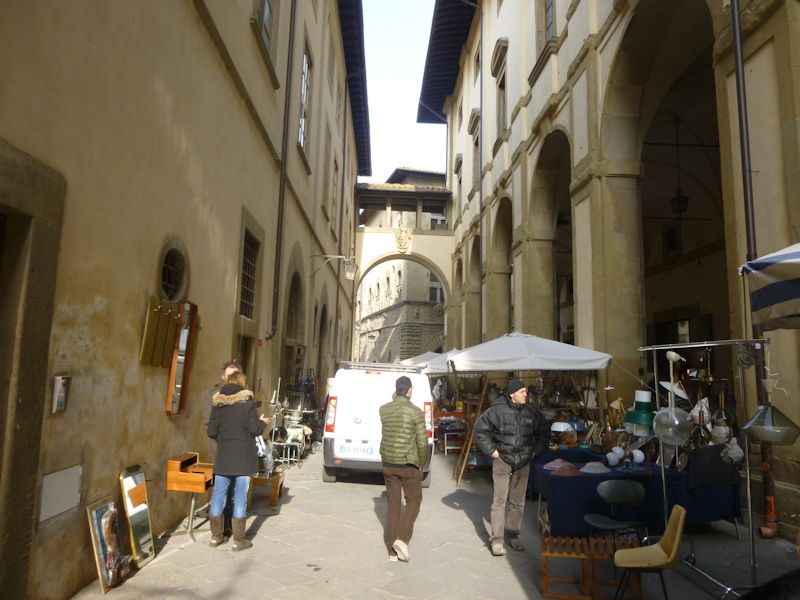You may not find this terribly rewarding unless you're included here, so this is a good time for casual and random browsers to turn back before they get too caught up in the sweep and majesty of the proceedings and can't let go.
It's Sunday, the 1st of March, the antiques market is still busy, and our friends are coming from Rome for the day.
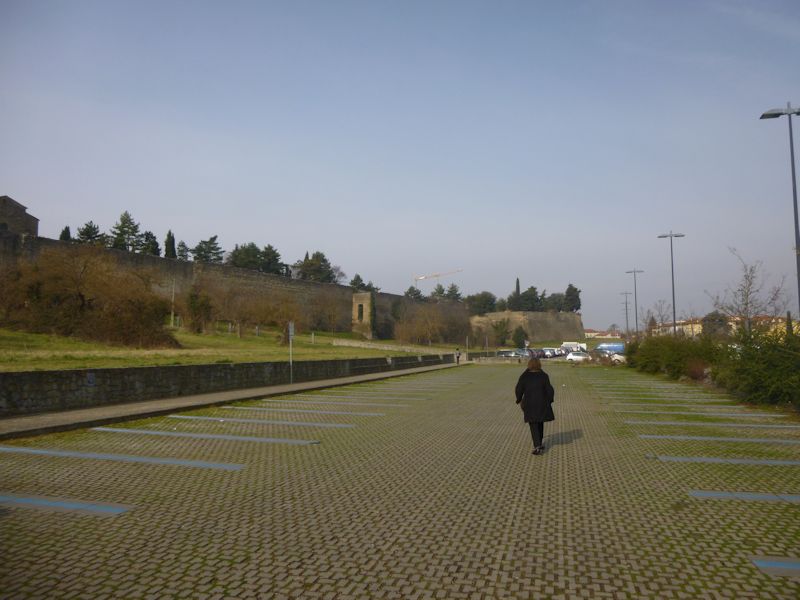
We're meeting them in the parking lot Pietri -- this is the paid section of the lot, the free section is down at the far end.
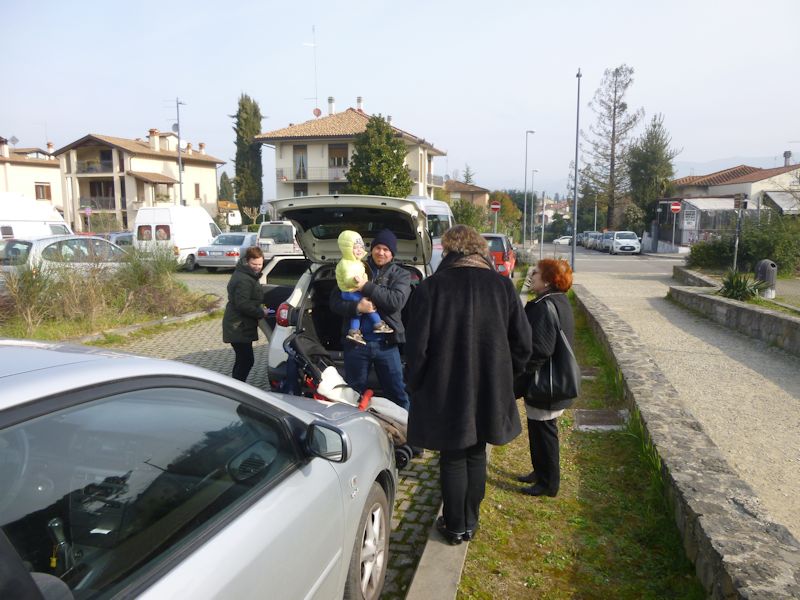
Everybody's suitably bundled up.
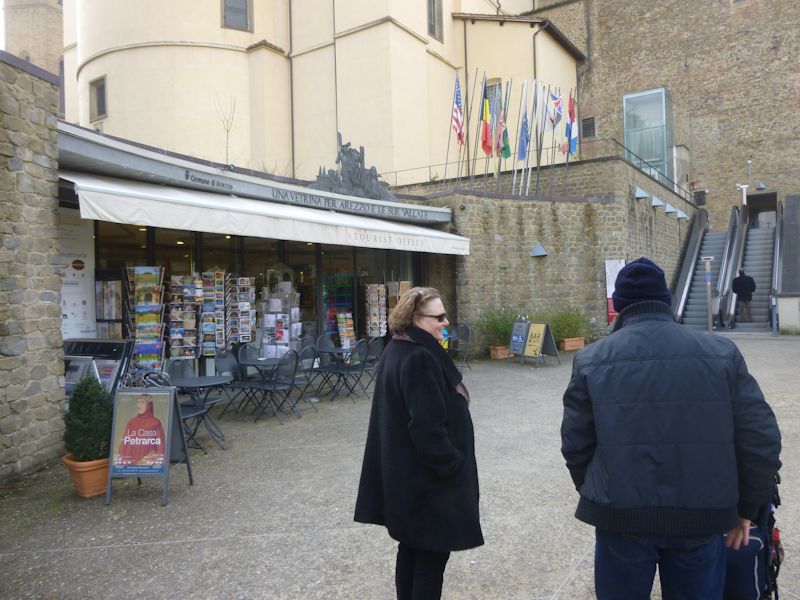
At the Tourist Office, just outside the city walls below the Duomo
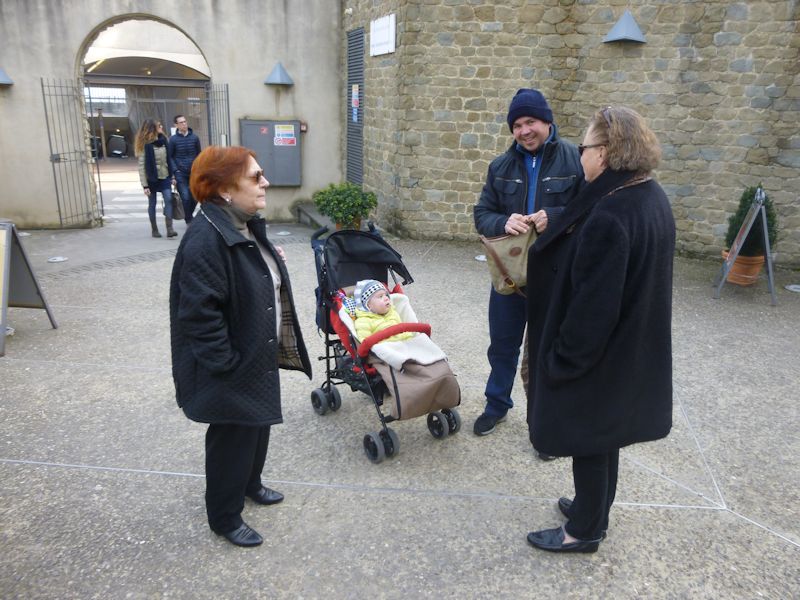
Making plans for the day
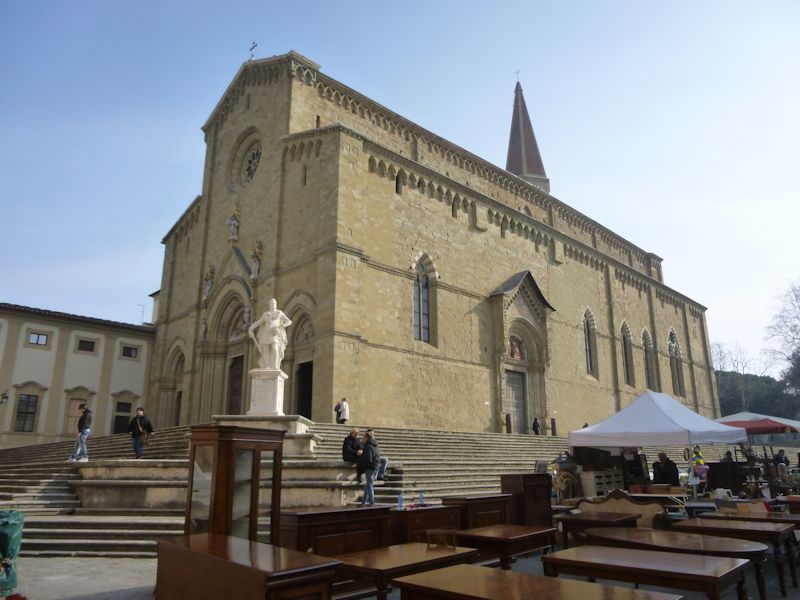
The Cathedral of San Donatus, and into the festival of antiques
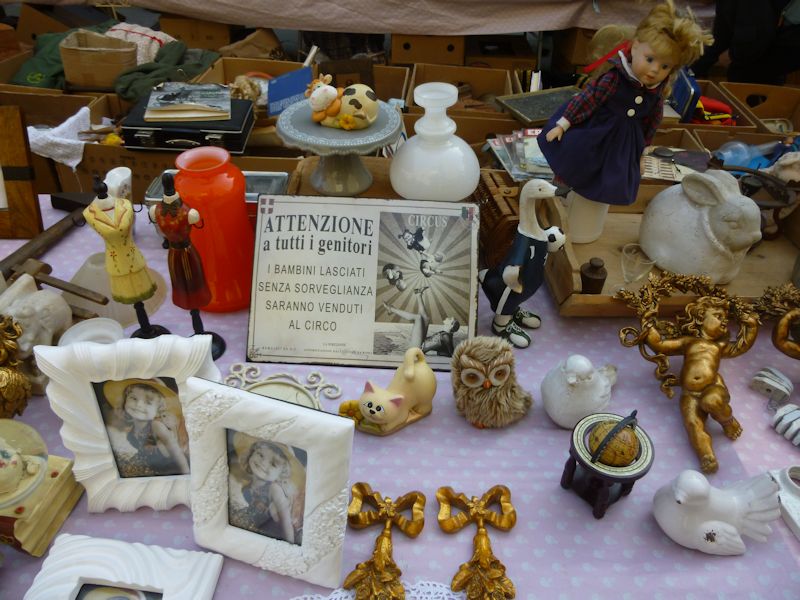
"Attention all parents! Babies left unsupervised will be sold to the circus!"

"To win, and we will win" (Mussolini's slogan announcing the declaration of war in 1940).
"It's better to live one day as a lion than a hundred as a sheep" (another Mussolinism).
And the American flag.

The tower of the Palazzo dei Priori, built in 1337

A drum-and-bugle marching band in medieval kit

The Palazzo Pretorio, or Praetorian Palace, was from 1290 the base of the Capitano del Popolo, or Captain of the People, an officer who in the 13th century was chosen in many cities to represent the rising merchant and professional class in restricting the administrative institutions traditionally controlled by the noble families.
The present building resulted from the knocking together in the 14th and 15th centuries of three separate buildings belonging to the Albergotti and two other prominent families. The façade is festooned with the coats of arms of successive capitani, podestàs, and Florentine commissaries (Florence's supervisors or governors of Aretine administration) through to the 18th century. It was used as a prison for a while, like everything else, it seems.
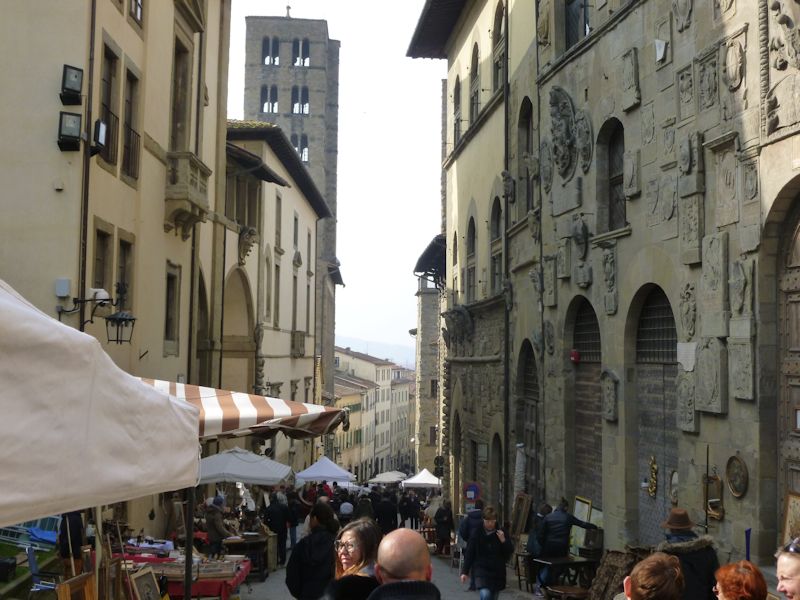
On the Via dei Pileati looking downtown, as it becomes the Corso Italia, at the Palazzo Pretorio

Catching up on old times, with an alert eye to the antiques

The Palazzo Albergotti
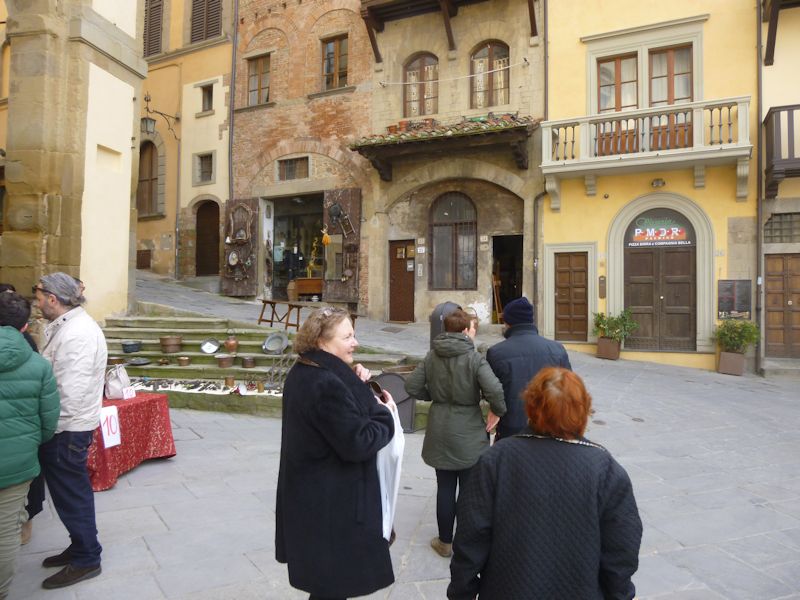
Street scenes
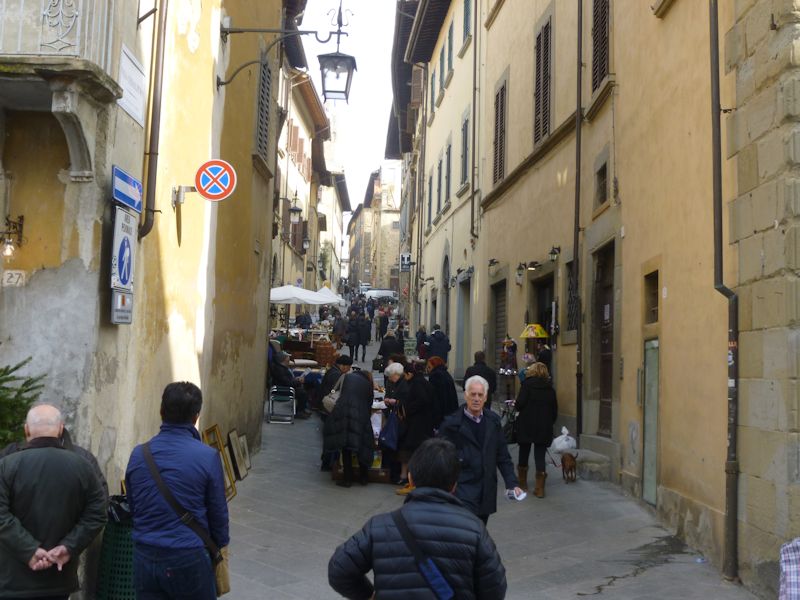
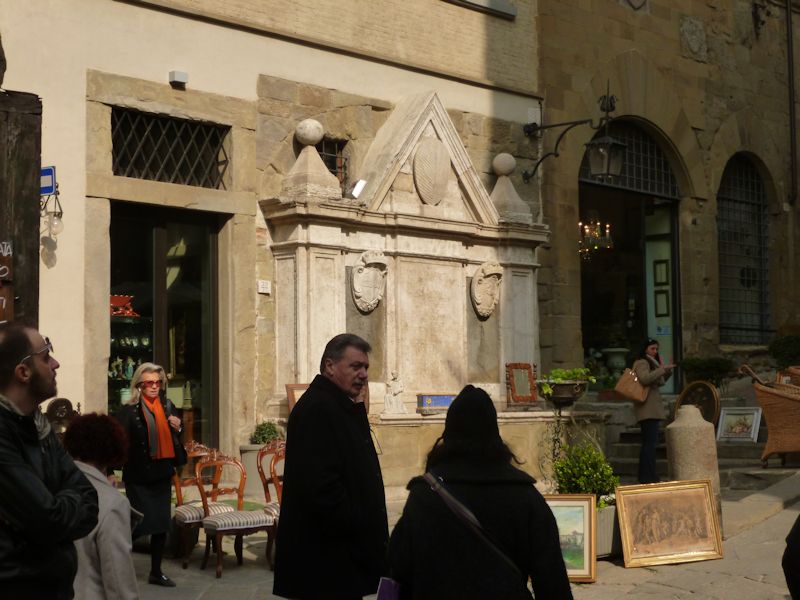
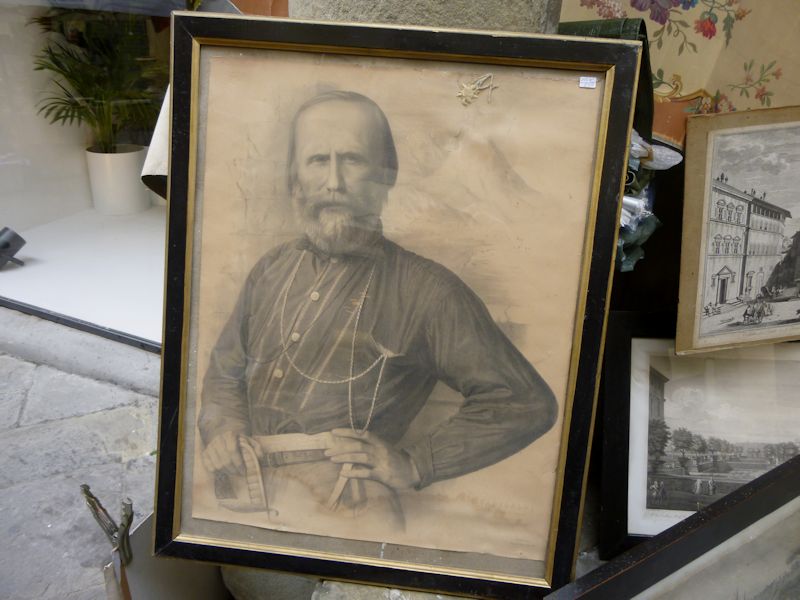
Guess who? ["George Washington slept here"]
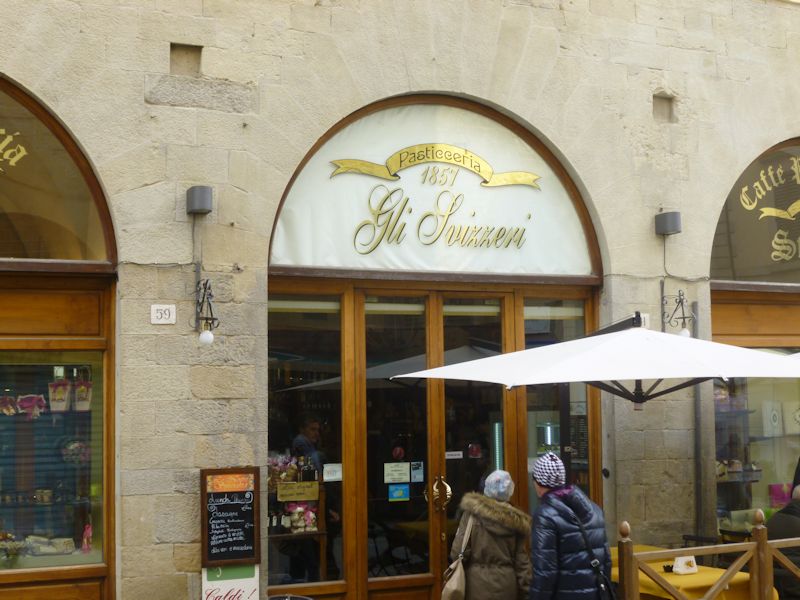
The Swiss pastry shop, since 1857

The Tower of 100 Holes

The front of Santa Maria della Pieve
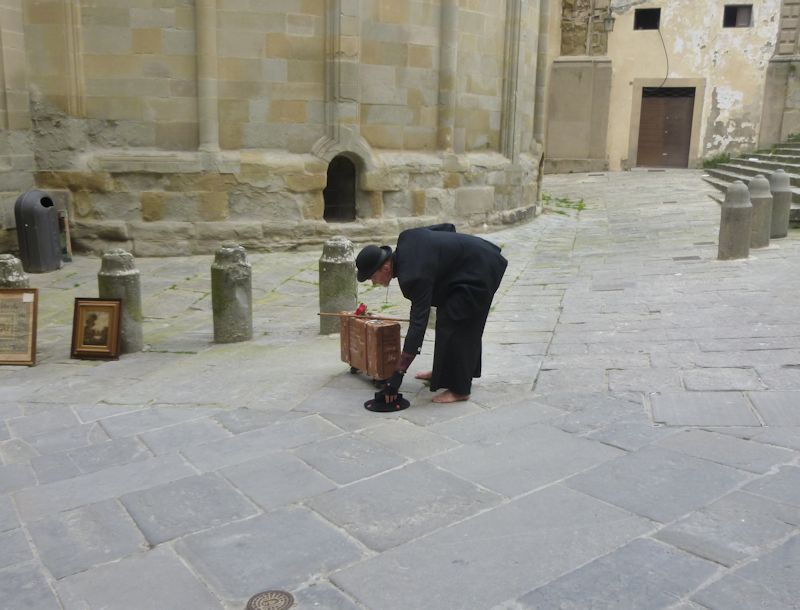
A barefoot street magician setting up for his show
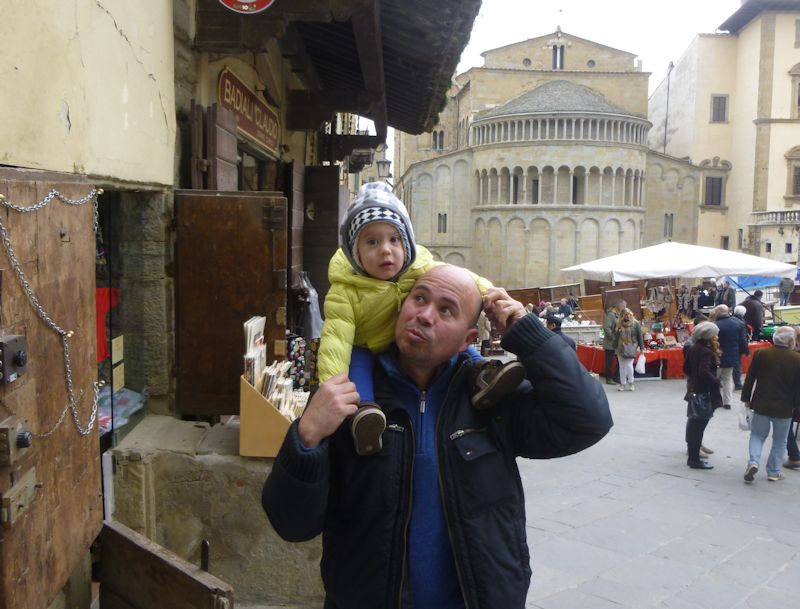
Oblivious to antique bargains . . .
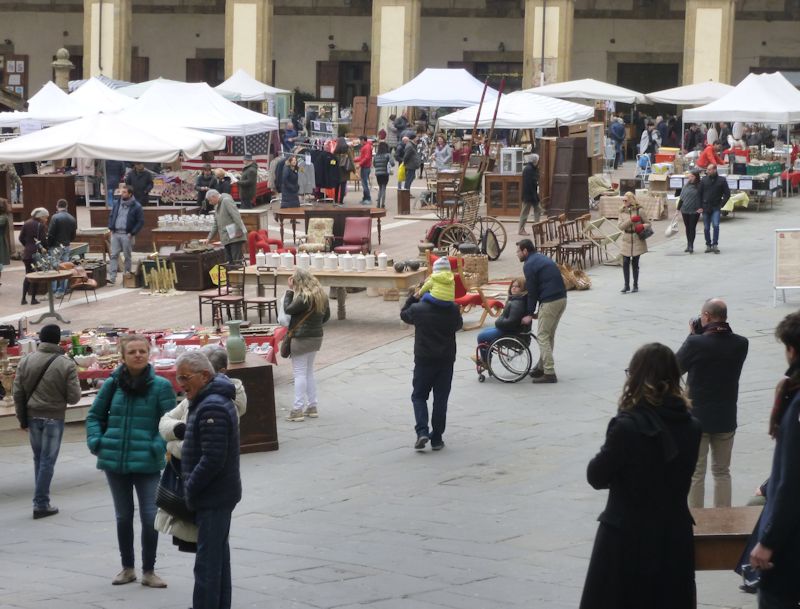
. . . but keen to see more.
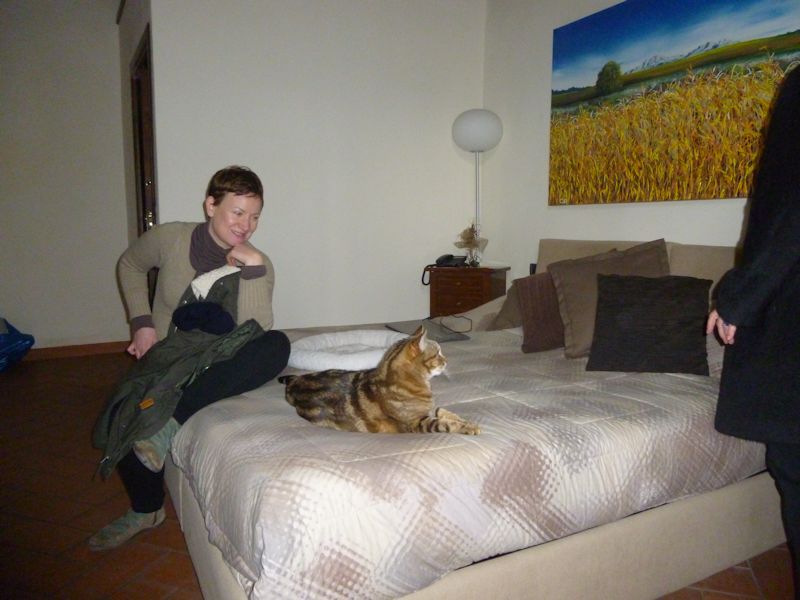
The Squirrel reuniting
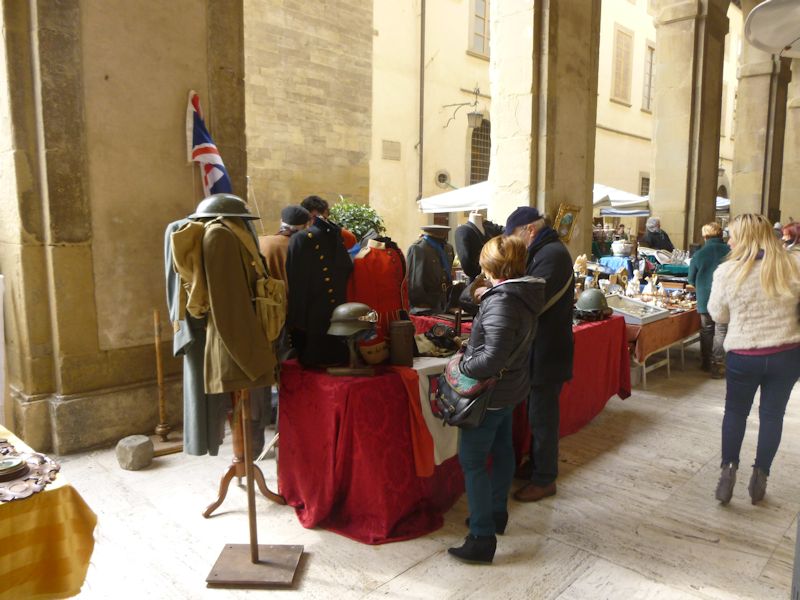
Get your military helmets and insignia here
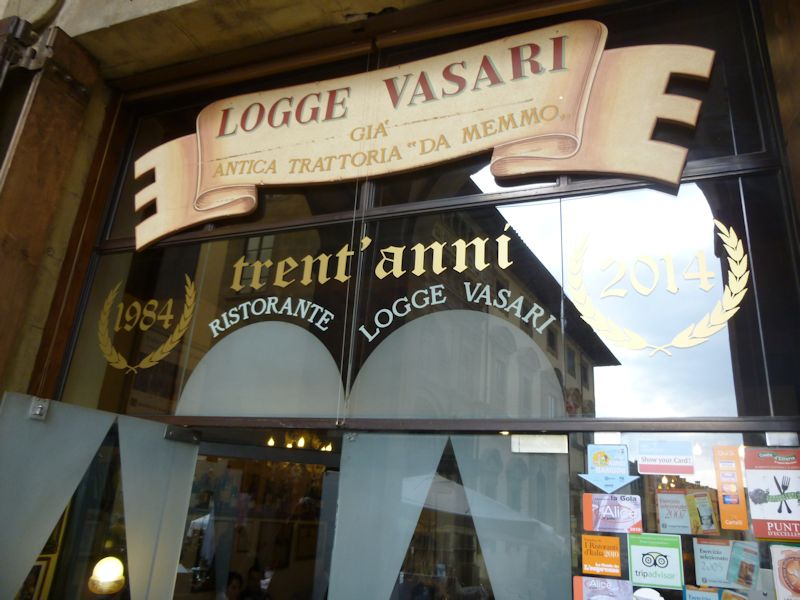
Lunch time at the Logge Vasari
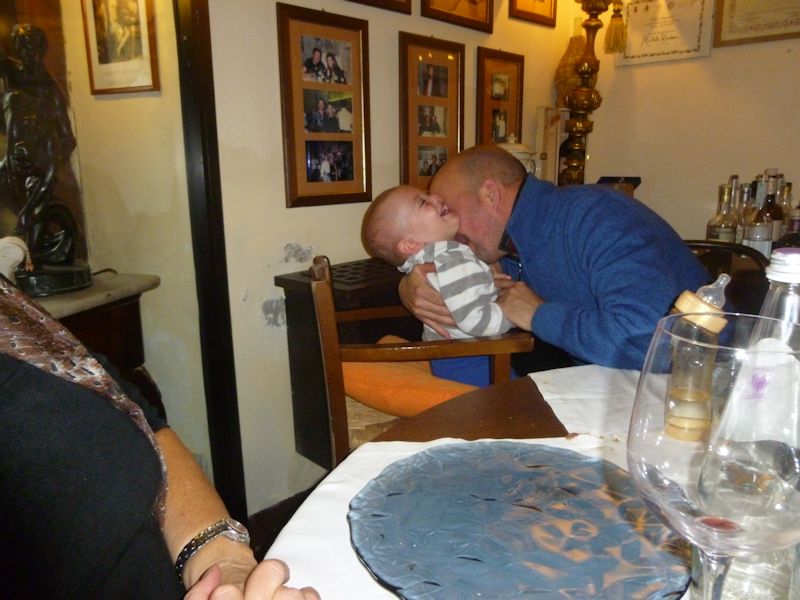
Let's just see the menu
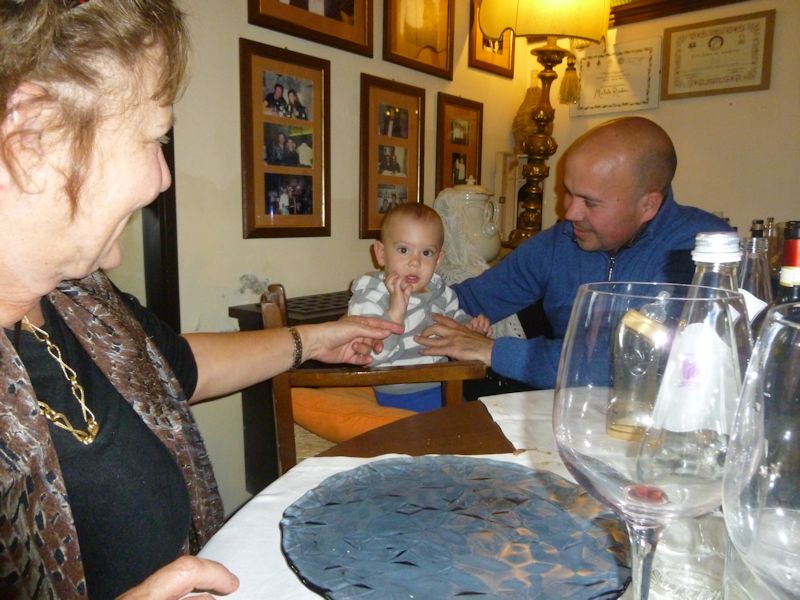
We get to choose anything we want from the menu; Elier gets strained vegetable purée.

A comfortable relationship with cameras
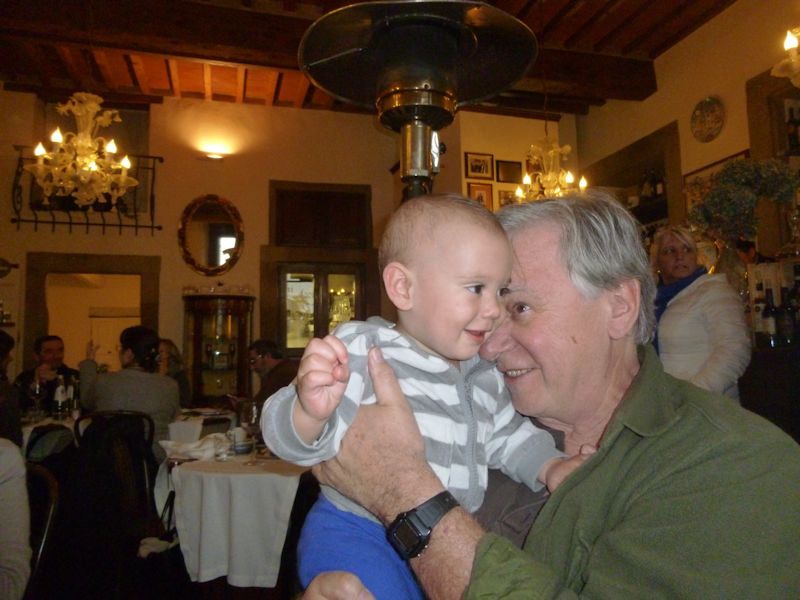
And happy to make new friends
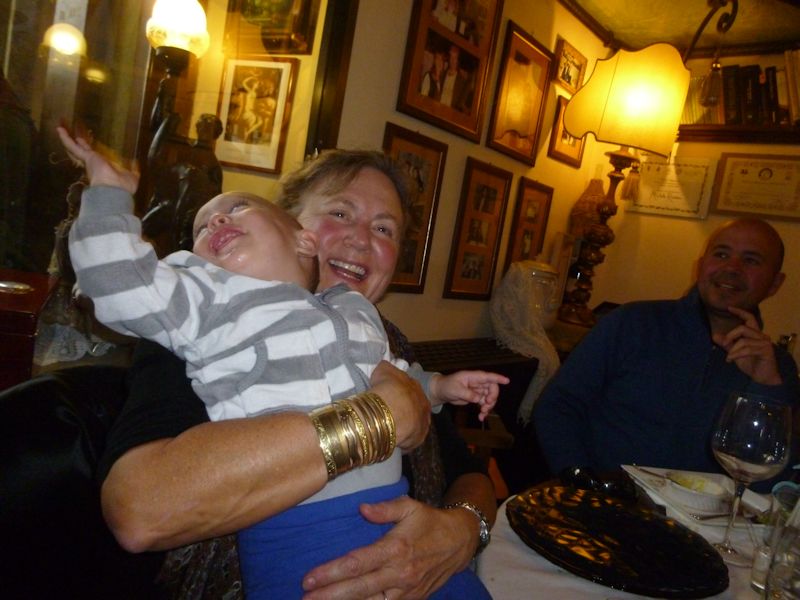
And always ready for a party
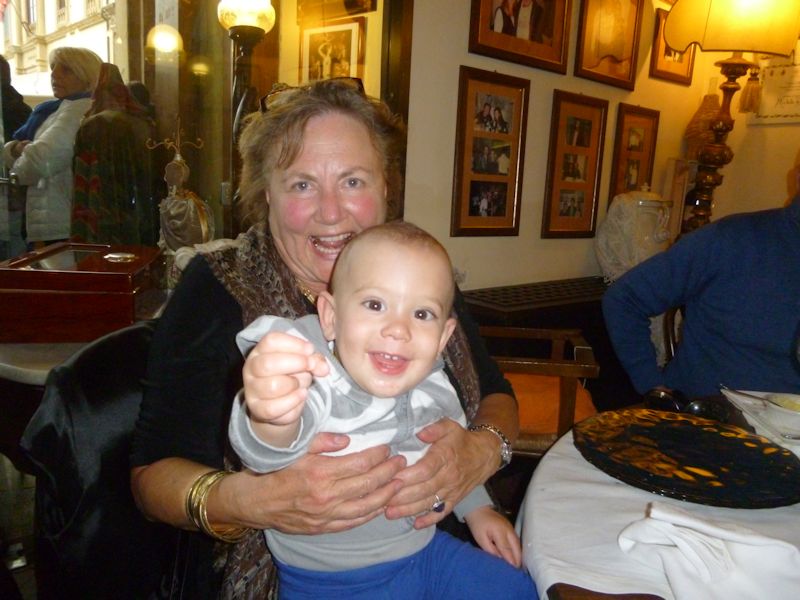
And generously offering to take my picture next
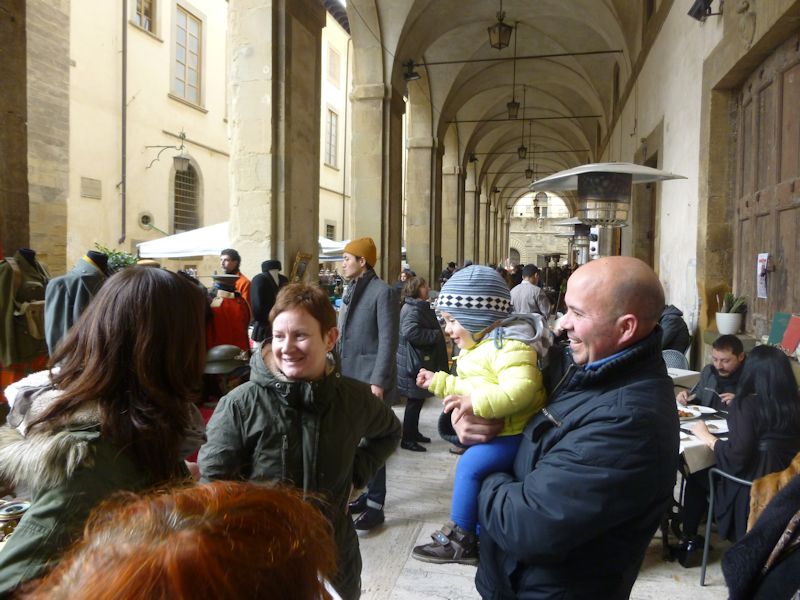
Friends of our friends, from university, meeting up for coffee
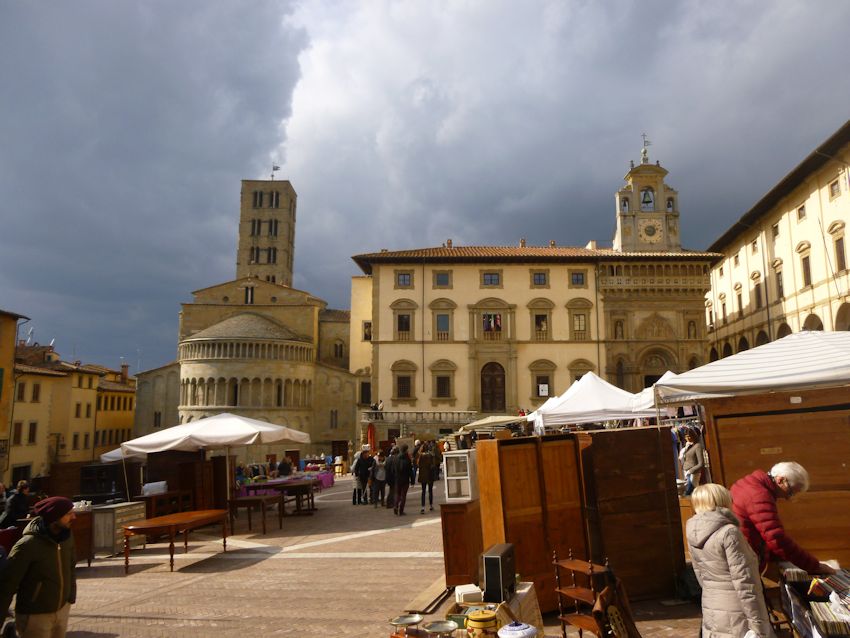
The Piazza Grande with clouds


Elier's headed back to Rome . . .
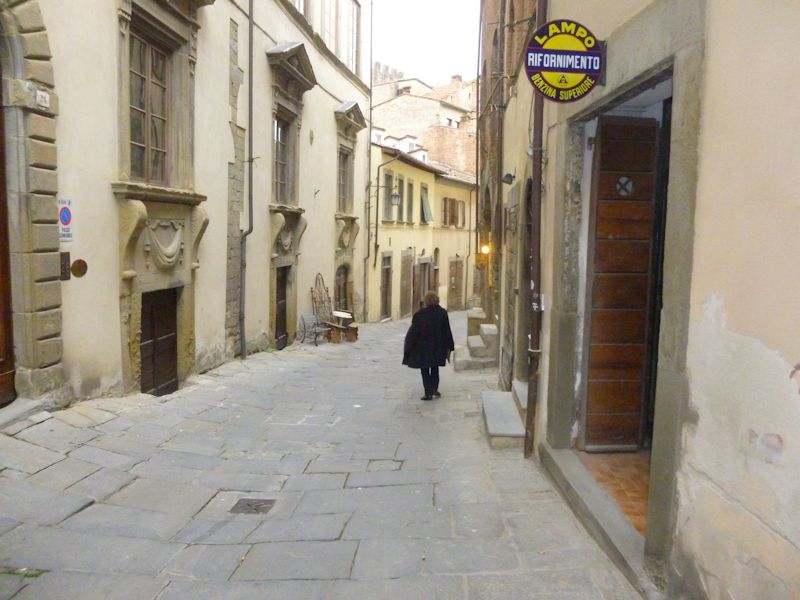
And we're headed for the Piero della Francescas.
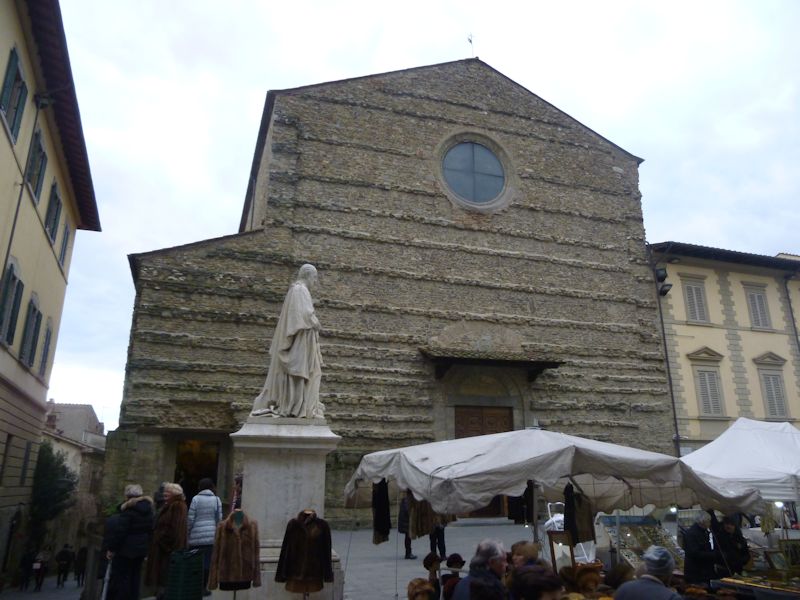
The Basilica of San Francesco, begun in about 1290, with the façade still awaiting completion

It's a simple, single nave with a few chapels and niches on the sides, all of it loaded with frescoes.
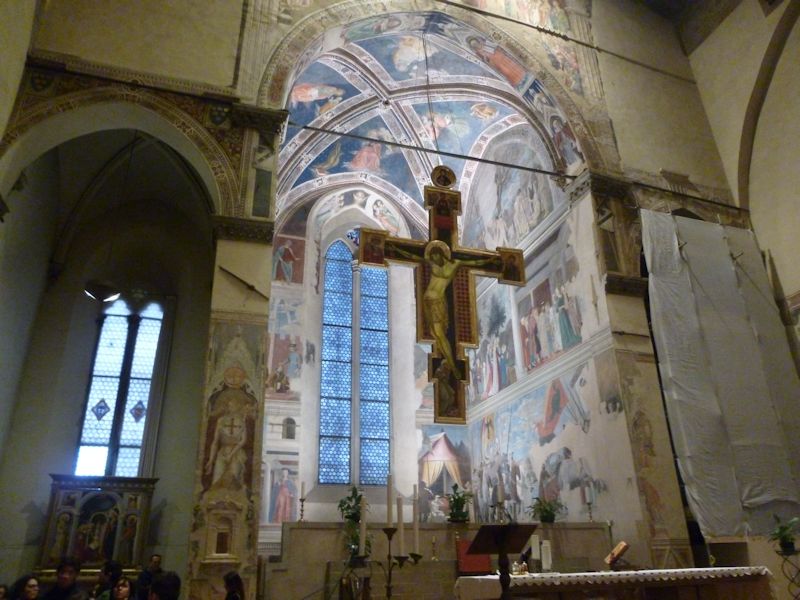
We hang around for a little while, soaking up the ambiance and waiting for our number to be called. In the meantime, the Cimabue-knockoff crucifix is by "the Master of San Francesco", a 12th century contemporary of Cimabue.
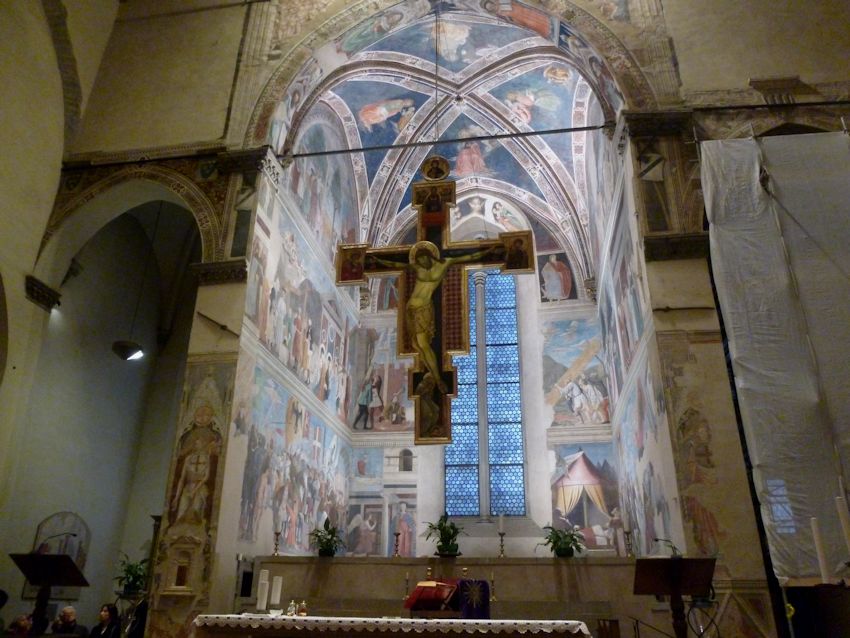
The Cappella Maggiore, or main chapel behind the altar -- there's not room for too many visitors back there, and that's what everyone has come to see.

Piero della Francesco executed the fresco cycle of The History of the True Cross between 1453 and 1464, based on the hagiographic tales in the Golden Legend compiled by the Genovese bishop Jacobus de Voragine in about 1260.
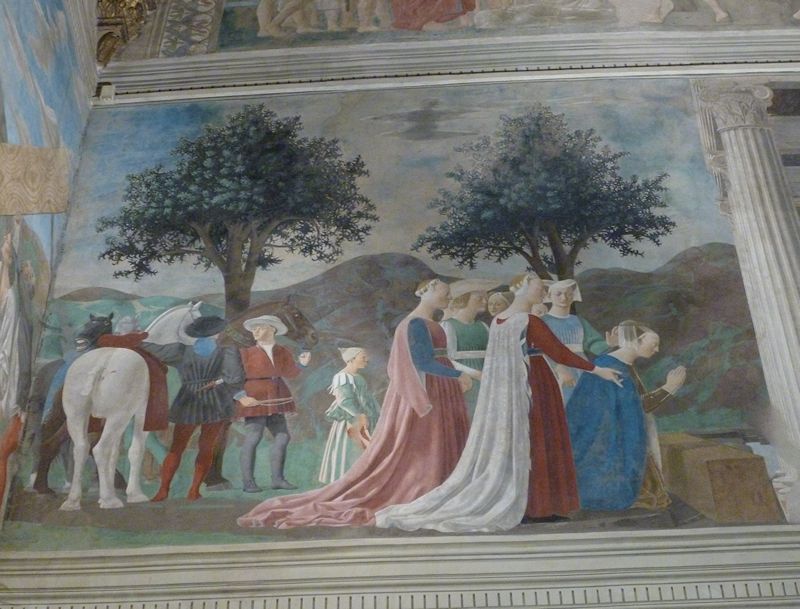
The eleven scenes depict episodes associated with the Cross, from Adam's time through the Queen of Sheba (in 15th century costume) adoring the wood from which the Cross would eventually be made . . .

. . .to the Roman Emperor Constantine's victory at the Milvian Bridge (in 15th century armor) . . .
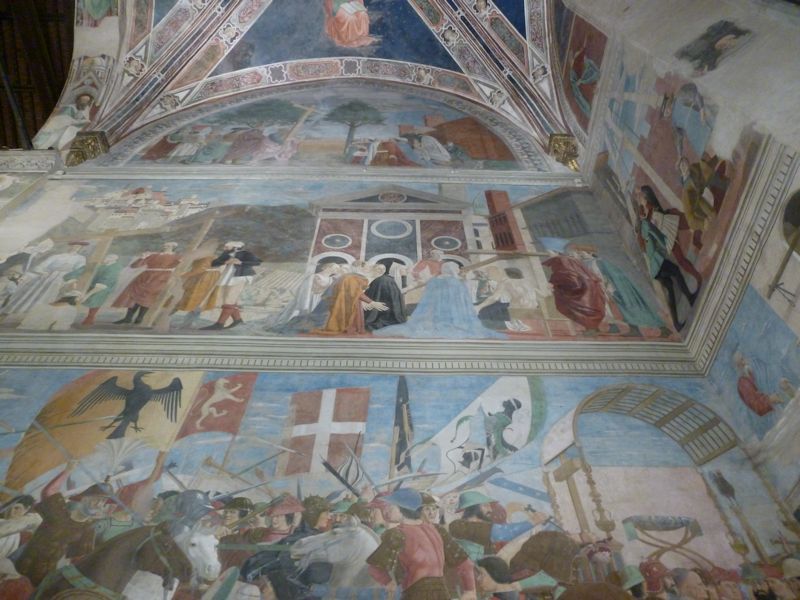
. . . to the discovery of the Cross in the Holy Land by Constantine's mother St Helena . . .
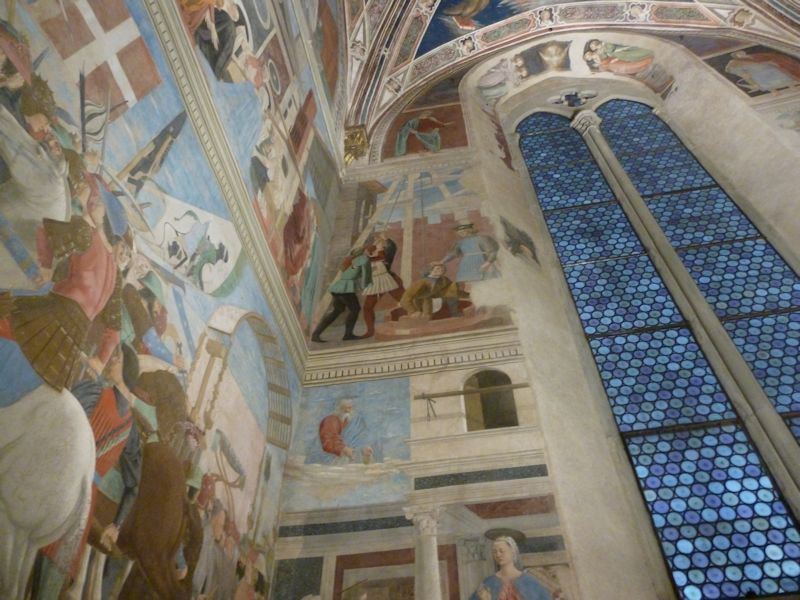
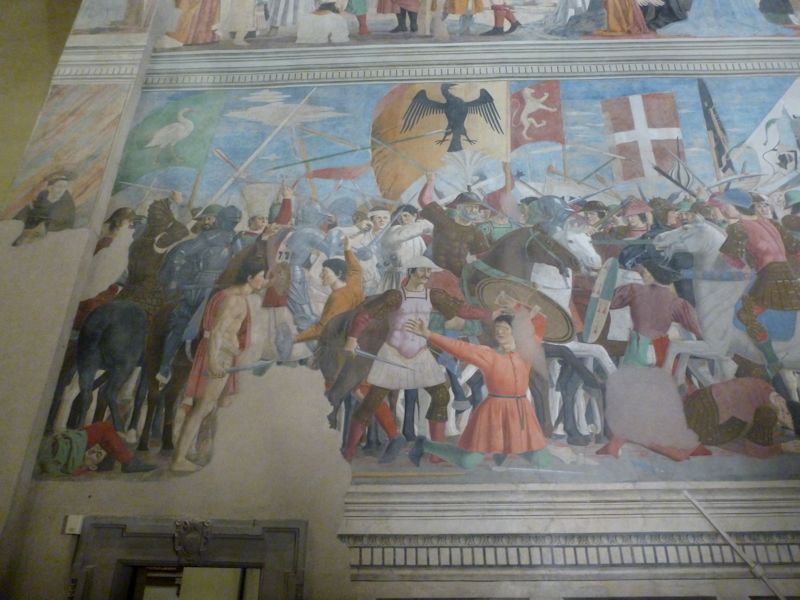
. . . including the Emperor Heraclius' victory at the Battle of Nineveh in 627 over the armies of the Persian king Chosroes II . . .
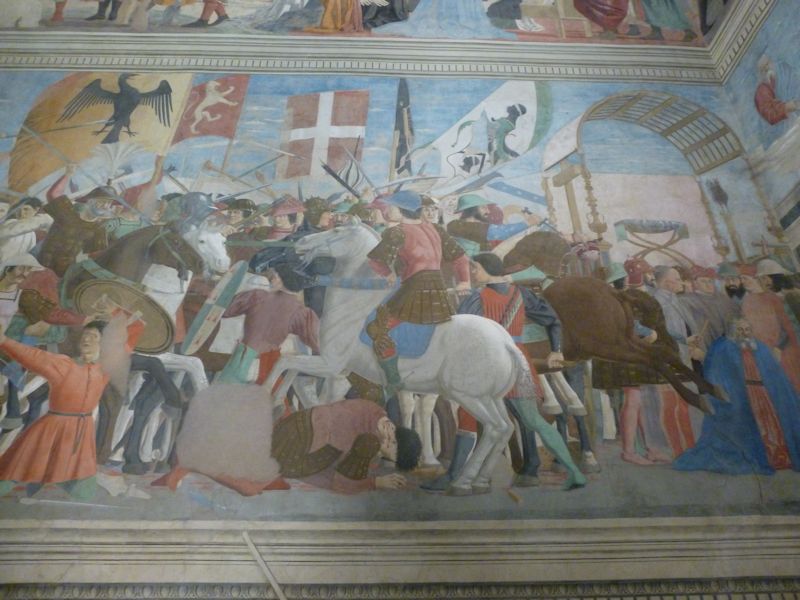
. . . (that's probably him being beheaded on the far right) whose generals had stolen the True Cross from Jerusalem in 607.
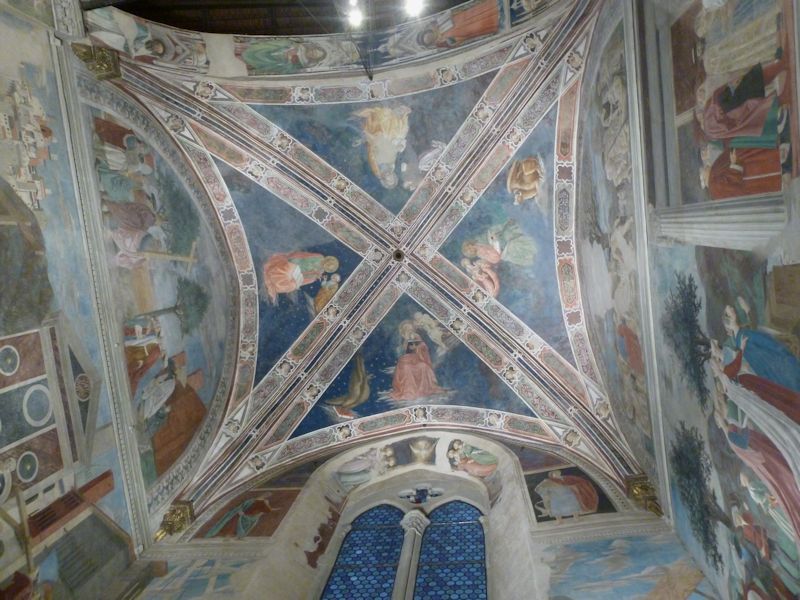
The ceiling of the chancel

A detail from an intriguing Last Supper in the nave; we collect photos of what the Apostles thought they were eating at the time, but this goes into the Undecided file. Turnips, perhaps.
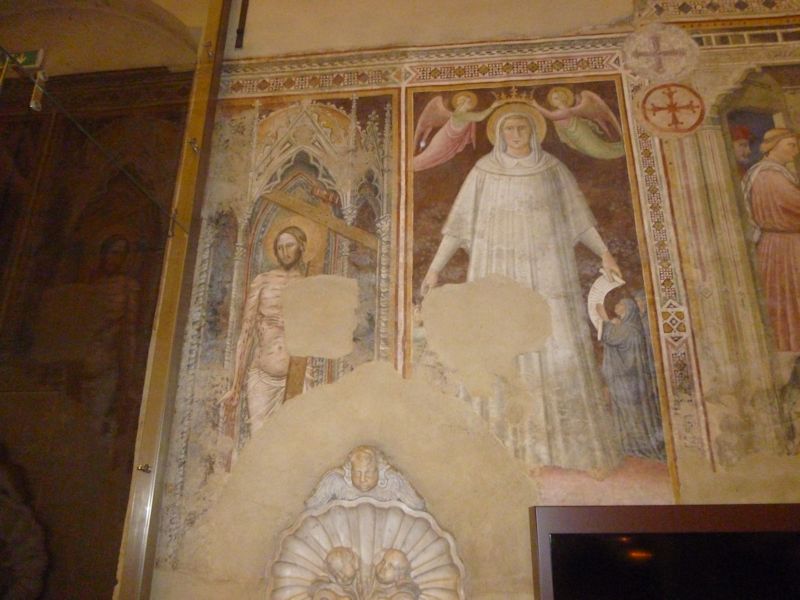
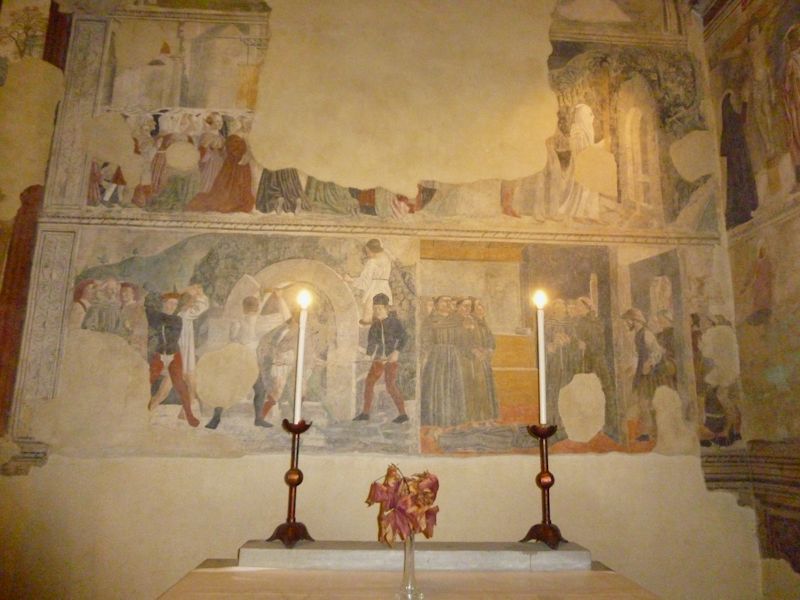
14th and 15th century frescoes everywhere

Episodes in the life of somebody, presumably St Francis
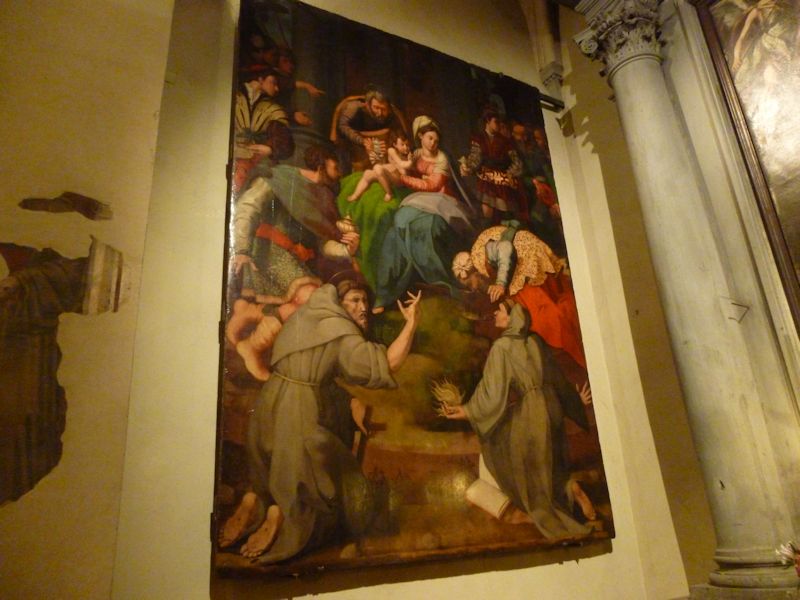

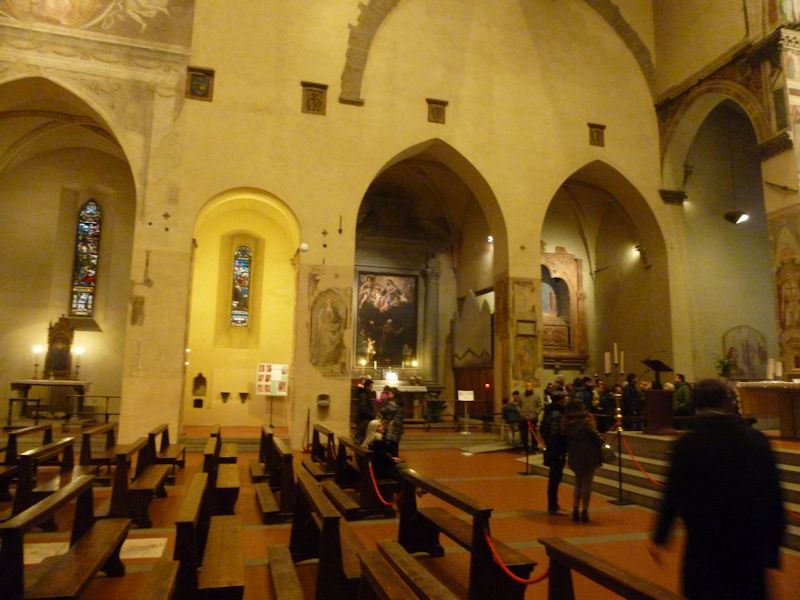
There's a "lower church" below, a nave with two aisles
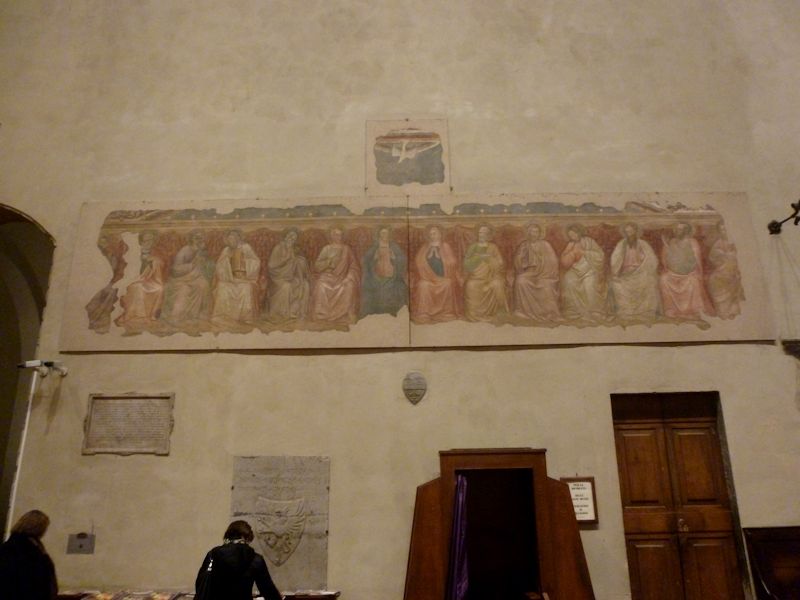
I'm guessing Apostles.
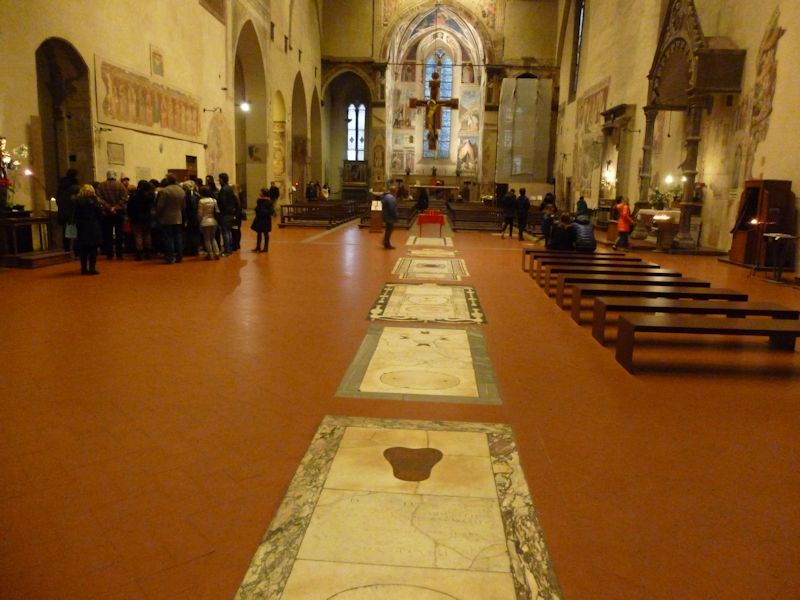
A line of dead Worthies under the floor

Hundreds of enthusiastic tourists milling around and passing back and forth, and a bored and forlorn Confessor waiting in vain for some business

Since we're here, we'll revisit the Saints Flora and Lucilla abbey church, just down the block . . .
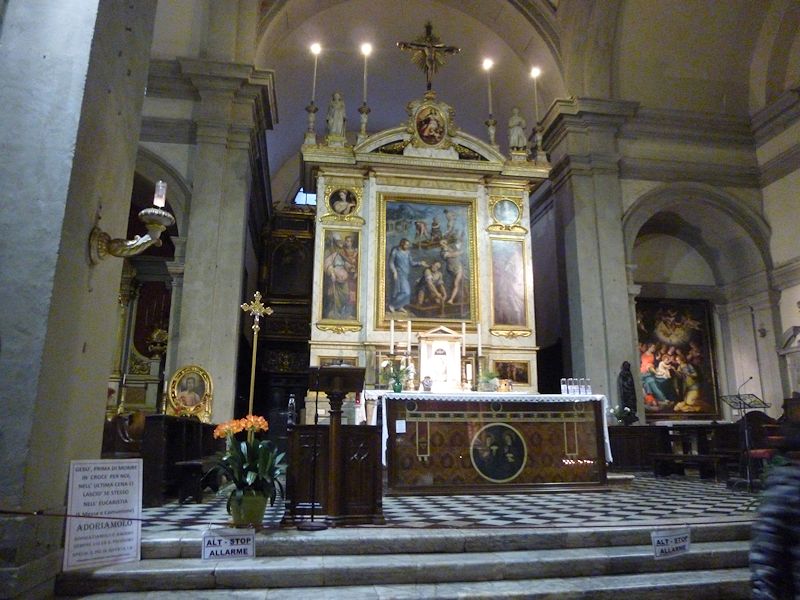
. . . and its enormous altar designed by Vasari in about 1563 for his own family chapel up the street in Santa Maria in Gradi and moved over here (without his permission) in 1865.
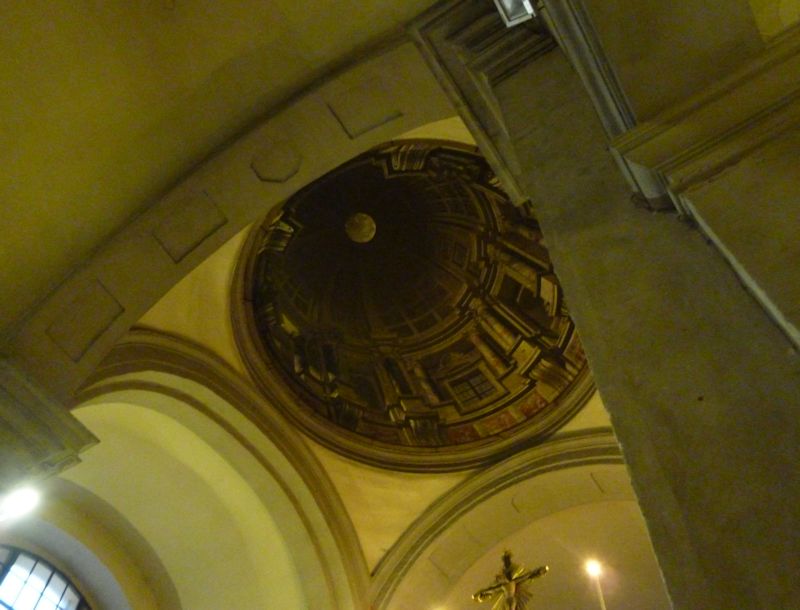
And I have the opportunity to direct Kristin's attention to the interesting dome above the main altar, to which she helpfully points out that it's not a dome, it's a painting of a dome. (By Andrea Pozzo, 1702)

These 14th century painted crucifixes are as common as biscuits in Arezzo

A fairly conventional, but illuminated, Madonna with saints or a satyr and a bishop, with an astonished disembodied head out front.
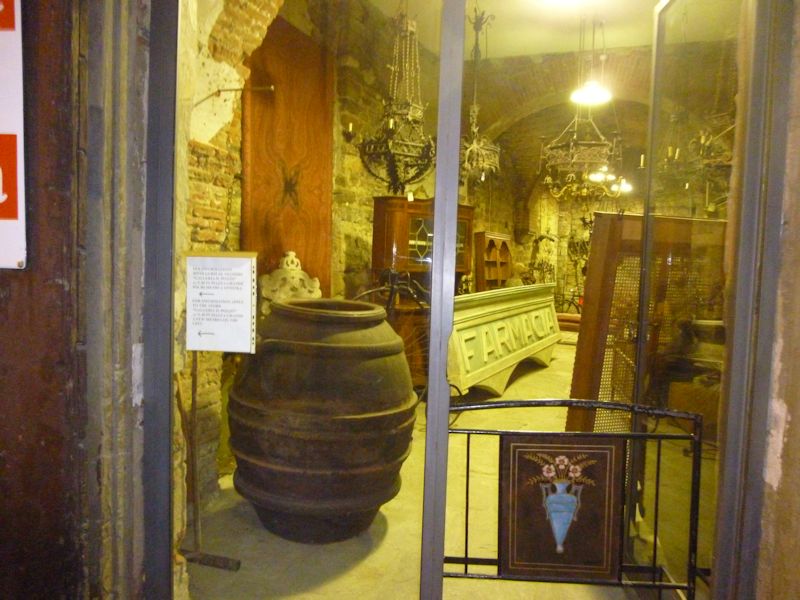
Another antiques workshop next to our hotel.
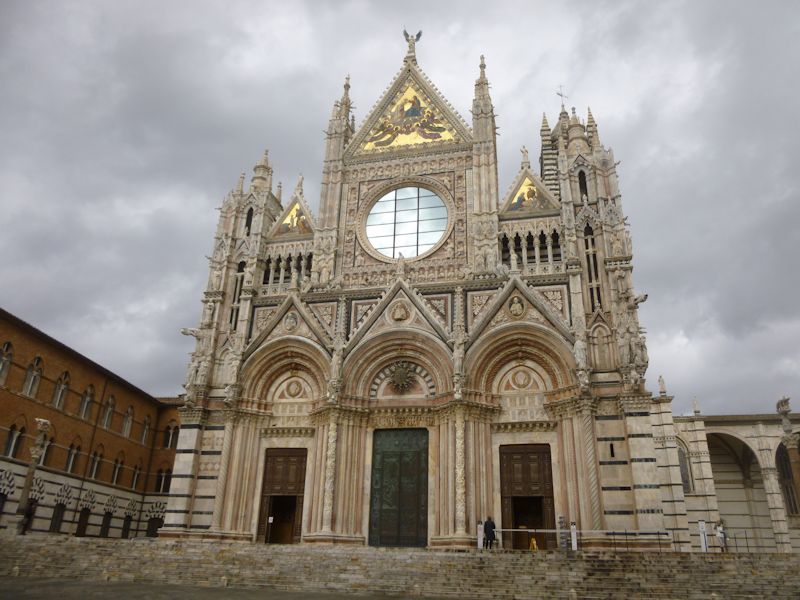
Tomorrow: Siena
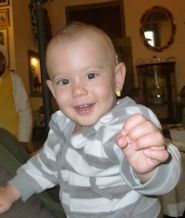 Dwight Peck's personal website
Dwight Peck's personal website